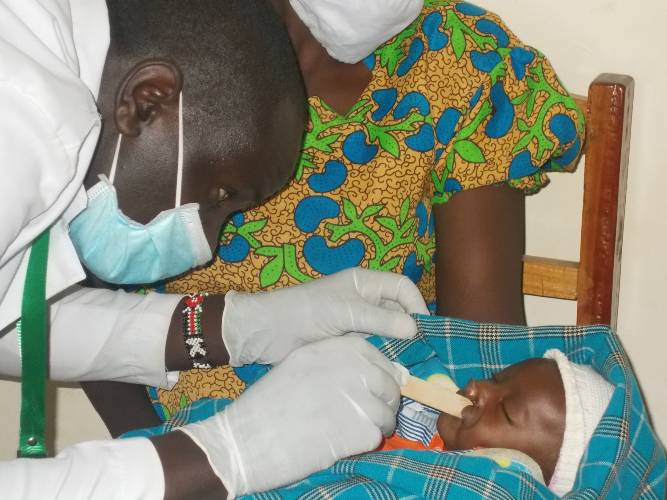×
The Standard e-Paper
Smart Minds Choose Us

Approximately one in every 1200 Kenyan babies is born with a cleft lip or cleft palate. Cleft lip refers to a birth defect which a child is born with. It normally occurs on the upper lip where the lip is divided at the middle, one side or both side. For some you get a division on the face from the lip to the eye.
Baby Ezekiel Wanjala (Pictured) happens to have been born with a cleft lip and will undergo the first surgery at Dreamland Mission Hospital in Bungoma County.